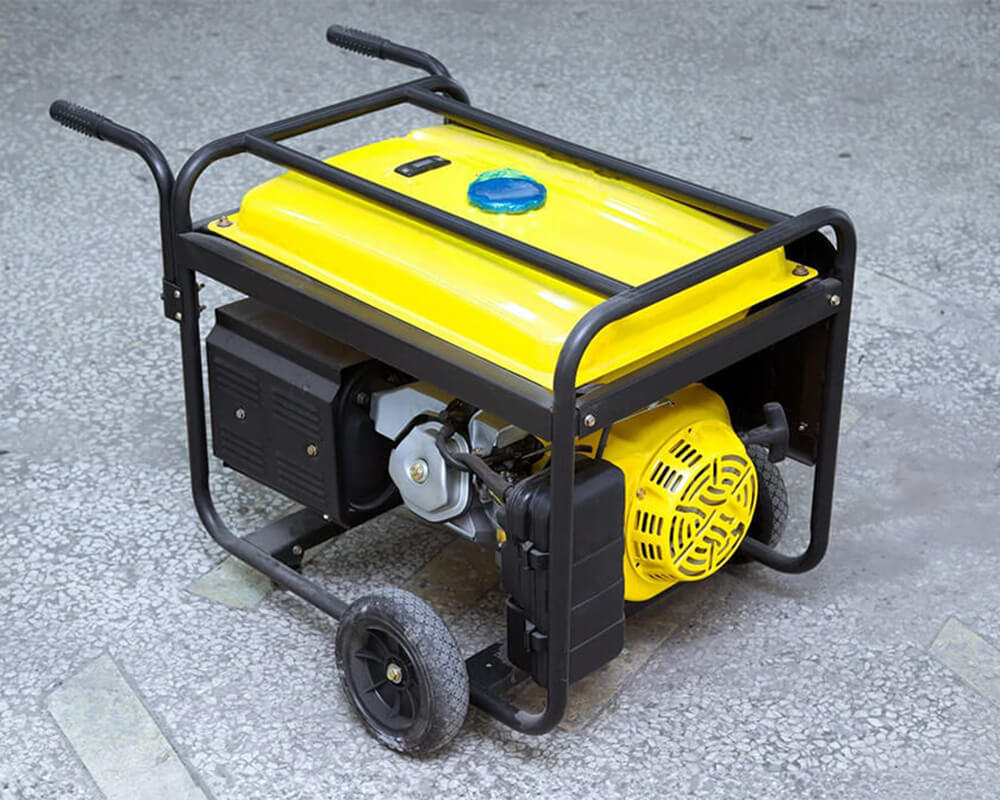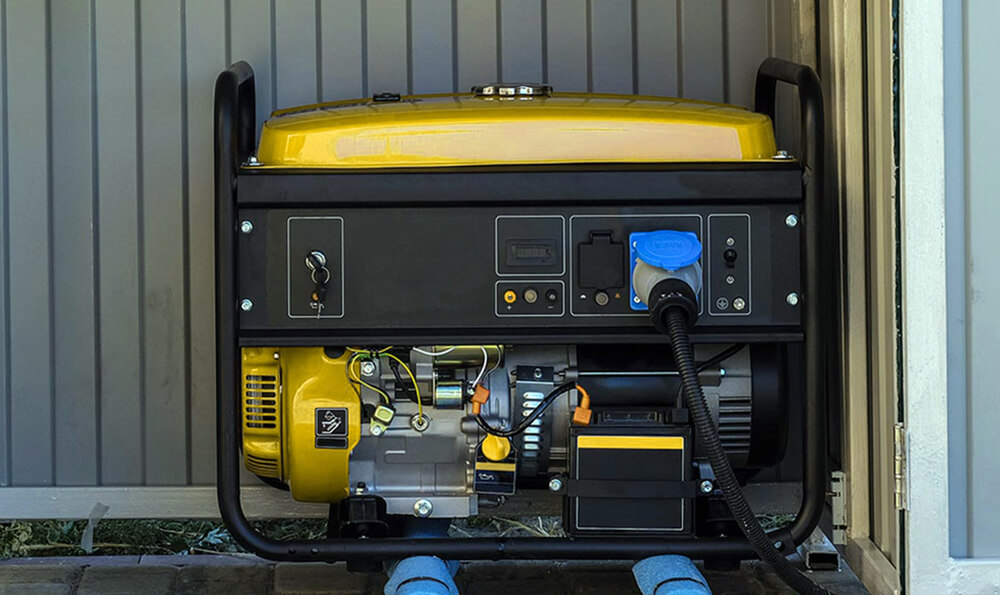BISON is a premier home generator manufacturer that delivers reliability, innovation, and customer-focused service. Committed to quality, advanced engineering techniques and strict quality control measures ensure that each generator performs at its best in any situation.
BISON offers a variety of home generators for you to choose from.
contact BISONPortable home generators are flexible, mobile power solutions. You can move them where needed and they run on gasoline, diesel, or propane. They vary in size to suit different power demands. Ideal for temporary scenarios like power outages, outdoor events or camping trips, these generators need manual handling and must be used in well ventilated areas to prevent carbon monoxide accumulation.
Home inverter generators deliver cleaner and more stable power. They first convert generated electricity into direct current, then back into alternating current. This results in a reliable current safe for sensitive electronics such as laptops and medical devices. Additionally, these generators are quieter and use fuel more efficiently than traditional models, ideal for recreational use and households.
Standby home generator is fixed outside your house and link to your home electrical system. They run on natural gas or propane and start up automatically during power outages, ensuring a smooth switch to emergency power. These generators can power your whole home, keeping vital systems like heating, cooling and medical equipment running during prolonged blackouts. Though costly and needing professional installation, they provide carefree, continuous power without need for refueling.
Home solar generators absorb sunlight by photovoltaic panels, and then store energy in batteries. They are a green alternative to fuel based generators. These units generally cover smaller power demands like charging electronics or operating minor appliances. Their power output and reliance on sunlight are limitations, but ongoing improvements in solar technology and battery storage are enhancing their efficiency and capacity.

Did you know that alone millions of U.S. homes experience power outages annually, with each lasting over three hours on average? Factors like erratic weather, old infrastructure and rising demand stress power grid, leading to regular blackouts. In these times, home generator becomes crucial, offering a dependable backup power source to keep your home powered, comfortable and safe during outages.
In this detailed buying guide to home generators, BISON is providing you with essential knowledge to make a well informed choice. We will cover different types of home generators, key factors to consider when comparing them, and essential safety tips to help ensure your home stays powered without interruption.
Generator is a device that supplies electricity to your home, business or traveling, like a compact power plant.
Learn about generator safety
Home generators are crucial during power failures. However, using them wrongly can be dangerous, especially with carbon monoxide. Gases from burning generator indoors can build up quickly, and become deadly within minutes. For safety, operate generator in open spaces, away from doors, windows and vents. Recommended to consider installing battery operated carbon monoxide detector to increase safety. Moreover, some generators include built-in CO sensors and auto-shutoff capabilities to lower risks. Check with BISON generator manufacturer to more.
Generators vary widely in price. Portable generators typically cost between $100 and $400, making them the most budget friendly choice. Inverter generators usually have higher prices, varying from $200 to $700. Standby generators are the priciest, with prices for units running from $2,000 to $6,000. Solar generators also vary widely in price.
Generator prices mainly hinge on your power requirements and desired features etc. and let next explore other factors to consider.

Selecting home generator involves considering several important aspects to find the best fit for your needs. Here are crucial points to help guide your choice:
Determine your home's power needs by figuring out wattage needed for critical appliances and systems in an outage. Think about necessities such as fridges, HVAC, lights and health devices. Home generators specify their output in watts; ensure the one you pick can support the overall load of your essential gear.
Decide on your generator's purpose. Do you need backup power for occasional power outages, or a reliable system for frequent or or extended use? Your requirements will determine if a portable, inverter, or standby generator is best.
Generators run on different fuel types, each with its advantages and disadvantages:
Gasoline is easy to find but expensive and doesn't store long.
Diesel is more efficient and lasts longer, but it struggles to start in cold weather.
Propane burns clean and stores well but needs big tanks.
Natural gas is economical and convenient if you have a supply, but it's unusable if pipes are damaged.
Your budget will greatly influence your choice, including install and maintenance. Portable generators are usually more affordable. Standby generators, which power your entire home, cost more and need permanent installation.

Generators have other features that enhance it's convenience, safety and functionality. Here are some features to consider:
Automatic CO shutoff: Turns off generator if carbon monoxide levels rise, to prevent poisoning.
Electric start: Starts generator with a button press, no manual pulling needed.
Auto start: Activates generator during a power outage automatically, keeping your home powered.
Fuel gauge: Helps you track fuel levels to maintain continuous operation.
Multiple outlets: Allows direct connection of multiple devices and appliances.
Low fuel shutoff: Shuts off generator engine when fuel is low.
Portability: generator can be equipped with wheels and handle for easy move.
Durability: Select a durable, weather resistant model can cope with harsh conditions.
By carefully considering these aspects, you can select home generator that suits your power requirements, fits within budget, and includes features that improve its safety and reliability.
Transfer switch redirects electricity from utility grid to your generator when there's an outage, which can then safely connect to your home's electrical wiring and distribute power evenly.
Correct installation and routine upkeep are crucial for reliability and lifespan of home generators.
Homeowners might install smaller portable generators themselves, but larger systems usually need professional setup to meet safety standards.
Regular maintenance, including oil changes, spark plug and air filter inspections, fuel system care and periodic testing, keeps your generator dependable in emergencies.
Selecting a home generator goes beyond securing backup power; it's about achieving peace of mind, safety and efficiency in crucial times. Consider all of the above mentioned factors to choose generator that best suits your needs.
When making this important decision, consider the BISON home generator line. Investing in a BISON generator means choosing strength and stability, key attributes that will serve your family well in any emergency.
If you're ready to move forward, explore BISON website to discover our products and choose the right home generator for your guest family's energy requirements. Don't wait for the next blackout—prepare now!
Determine maximum total wattage your appliances may require at the same time, including surge wattage, and size generator accordingly.
Home generator run times differ by model and load. Portable and inverter generators usually operate between 8 to 16 hours, specific based on how they are used.
Yes, home inverter generators generate smooth, clean power with minimal harmonic distortion, safeguarding sensitive electronics like computers, TVs and medical devices.
table of contents
Choose BISON home generators for superior performance and unbeatable wholesale value
contact BISON